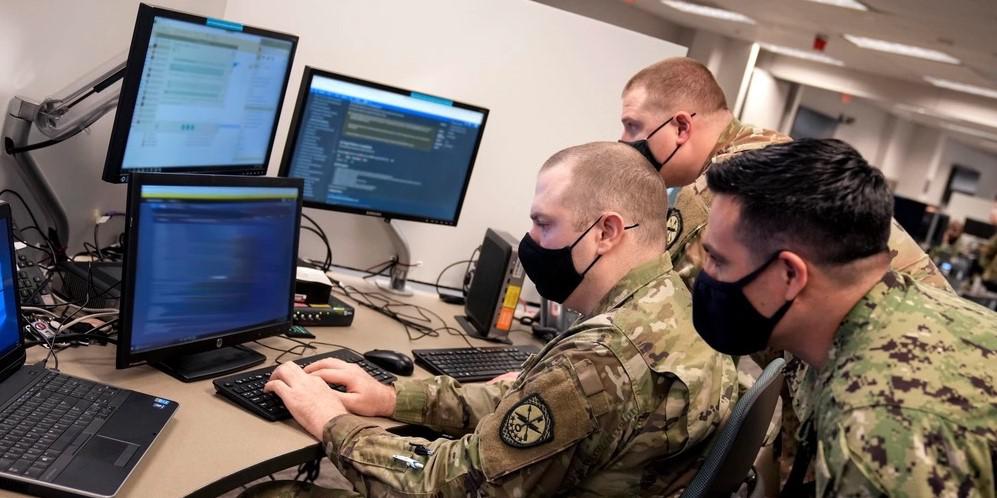Lessons To Be Learned From Russian Invasion
The United States and other NATO nations have been very careful not to go to war against Russia following Putin’s invasion of Ukraine. The nations, however, have moved to arm Ukraine, along with providing financial support and humanitarian assistance, and setting considerable sanctions against Russia. The U.S. Senate’s top military budget leader sees these steps as an initial success and identifies lessons learned or to be learned from observing the war, as well as several priorities.
“We've been able to assist Ukraine by providing equipment,” said Senate Armed Services Committee Chairman Sen. Jack Reed, D-RI, who spoke with reporters during a Defense Writers Group call on March 23. “We've been able to mobilize NATO and operate together….We have a real coalition. And I think it's been a success, so far. Obviously, the great credit has to go to the courage of the Ukrainian fighters, [who are] amazing. Their efforts, [along] with our efforts, we hope will lead to a resolution of the crisis in which the Russians remove their forces and there is a political settlement.”
In addition to the stronger conjunction with NATO, Sen. Reed cites the United States’ unity in responding to the war as a factor that leaders within our country should apply going forward. “Well, I think there are lots of lessons,” the chairman offered. “One is the whole of government approach, that is absolutely key. We can't forget that. That is something we want to apply, not just in Europe, but across the globe, particularly in Asia.”
Sen. Reed also noted that the committee will look closely at the cyber warfare aspects of Russia’s invasion, including the U.S. Cyber Command’s (CYBERCOM’s) assistance to Ukraine. “I think we will get very deeply involved in debriefs on cyber operations,” he emphasized. “My sense is that our cyber operations have been extremely important, informing the Ukrainians of the situation and also disrupting attacks by Russian cyber hackers on Ukrainian targets. So, that's a lesson we will definitely look at.”
Because cyber has become “one of the most critical aspects” of the battlefield, Sen. Reed ensured that the committee would continue to support U.S. cyber operations, especially from CYBERCOM, led by Gen. Paul Nakasone, USA.
“One of the areas that we have to look at very closely is maintaining and strengthening the cyber teams that General Nakasone has,” Sen. Reed stated. “These cyber teams, the actual groups of individuals who go out, penetrate the systems, develop the tools to do that, we want to make sure he's got the very best and he's got a sufficient number of them.”
Given the considerable shortage of personnel in the greater cyber workforce, outside the military, the chairman acknowledged that Congress might have to provide additional incentives to cyber warriors to keep U.S. cyber operations strong. “We're competing with very lucrative jobs on the outside for people with these types of skills,” Sen. Reed noted. “That is going to require, if necessary, inducements to stay in the service and for a long time.”
The advent of quantum computing and the need for advanced cryptology also remains a priority. “We have issues of encryption, always,” the senator stated. “This is a constant battle going back and forth between ensuring that our systems can protect it, and the other folks systems are able to be penetrated. this is all taking a much more dramatic effect because of the science behind quantum physics, artificial intelligence and other programs. We are in a race right now with our near peer competitors, to get the scientific, theoretical and practical aspects of quantum so that we can start using it before our opponents.”
In addition, Sen. Reed considered the Ukrainians’ defense an important lesson learned and advised U.S. leaders to take head of their adroit use of asymmetric warfare.
“It is [their] utility of asymmetric weapons,” he said. “Russia was coming in with tanks and jets and hypersonics [the Kinzahl missile] and what the Ukrainians have done with Stinger missiles, with air defense systems and being available to move around, has been able to counter what everyone assumed before the battle would be an overwhelming attack and very fast run by the Russians into Kiev. And again, this notion of asymmetric battle and dispersed fighting is something that we're going to take away from this.”
As far as what level of cyber warfare against the United States or NATO perpetrated by Russia or its proxies could be considered an act of war—crossing NATO’s Article 5 tenants—the chairman hypothesized that it would depend on the scale of such an attack.
“Russia has the ability to conduct cyber operations worldwide,” he warned. “They demonstrated that in the United States in 2016. ... And in 2018 [and since] we conducted operations to disrupt the possible interference into our election. [But] one of the problems with cyber is we have not written rules of the road. We had an intrusion into a presidential election by the Russians. And there was no formal mechanism to report them, or to sanction them. We're still in a very early stage with cyber, so it would be a function of scale and probably the human consequences. If it's a significant cyber attack and there are significant casualties, that's more than a message. I think that's when you would need to be sitting at the table saying, we can and we must do something, but we're on basically a new ground on this.”
As far as the lawmaker’s perspective on if Russia would kinetically strike out against other nations during its Ukrainian invasion, Sen. Reed surmised that Putin and his military “are preoccupied and so overwhelmed by the situation in Ukraine. There are reports of a 10% reduction in their forces through attrition and battle and other issues. They are losing ground to do the Ukrainians. This is not going well. And I suspect most of what they are trying to do is sort of right the ship.”





Comments